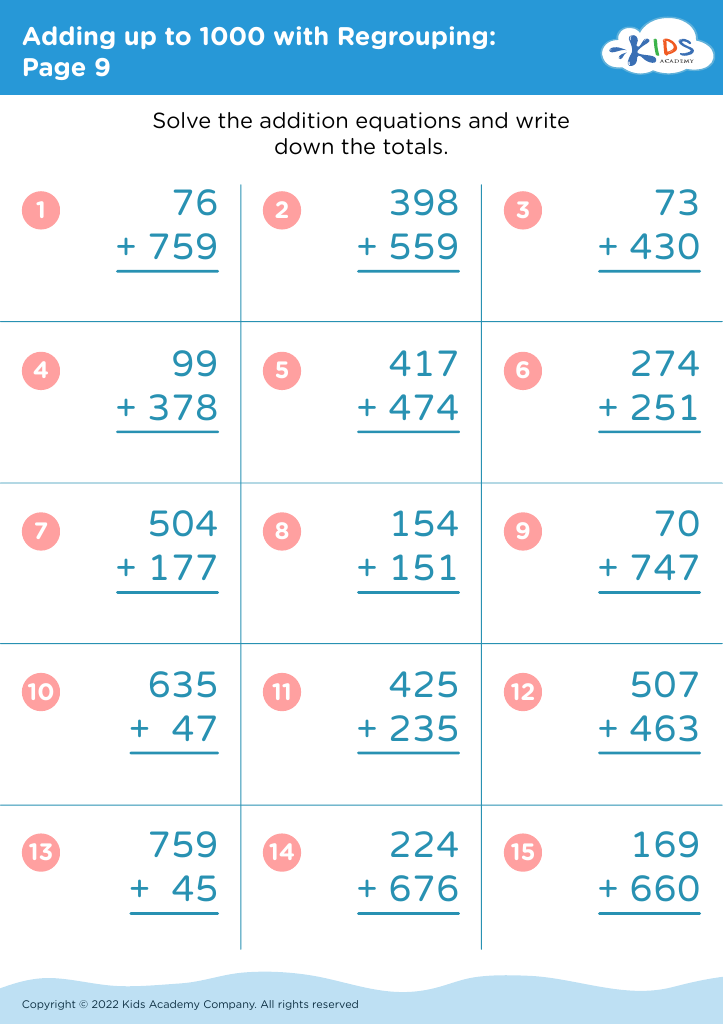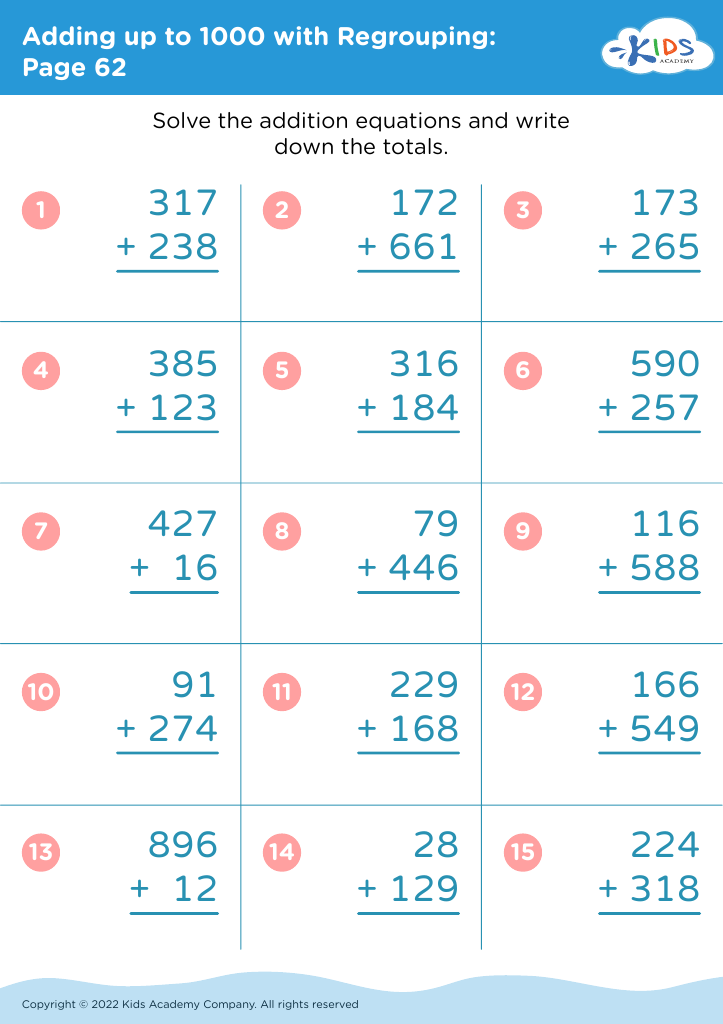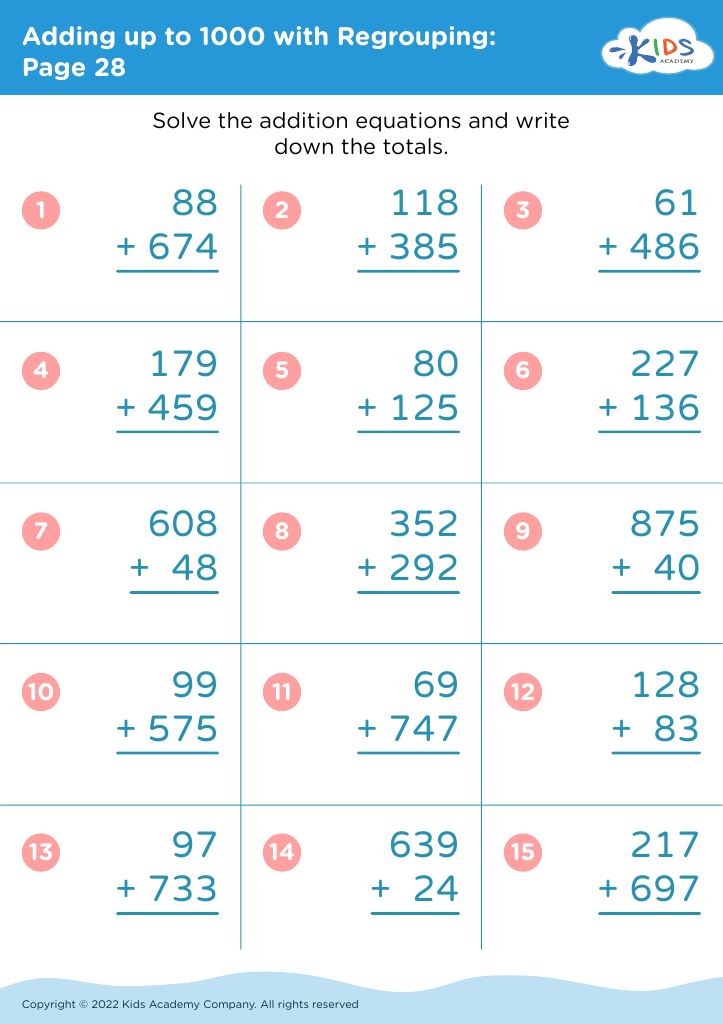Problem-Solving Skills Adding up to 1000 with Regrouping Worksheets for 9-Year-Olds
5 filtered results
-
From - To
Enhance your 9-year-old's mathematical abilities with our engaging worksheets focused on problem-solving skills through addition up to 1000 using regrouping. These interactive resources help children develop critical thinking and logical reasoning as they tackle real-world scenarios involving larger numbers. By practicing these essential math concepts, young learners will gain confidence and proficiency in their calculations. Each worksheet is thoughtfully designed to promote understanding and retention, making math both fun and rewarding. Empower your child to solve complex addition problems with ease, fostering a lifelong love for learning and a strong foundation in mathematics. Explore our worksheets today!
Problem-solving skills, particularly in math, are essential for 9-year-olds as they build foundational understanding and confidence. Mastering addition with regrouping, up to 1000, enhances students' ability to handle larger numbers, which is crucial as they progress in their education. Firstly, these skills foster logical thinking and analytical abilities. By engaging in problem-solving, children learn to approach challenges systematically, breaking them into manageable parts—a skill applicable across all subjects and life situations.
Moreover, effective problem-solving leads to improved academic performance, inspiring a positive attitude toward learning. When children grasp the concept of regrouping, they not only solve problems but also develop persistence and resilience. These attributes empower them to tackle increasingly complex tasks grade after grade.
Teachers and parents play a vital role in facilitating this learning. By providing guidance and resources, alongside encouragement, they can nurture a child's enthusiasm for math. Instilling strong problem-solving skills ignites curiosity and a growth mindset, enabling children to view difficulties as opportunities for improvement. Ultimately, prioritizing these skills equips children for future academic success and everyday challenges, setting the stage for lifelong learning and adaptability in a rapidly changing world.















